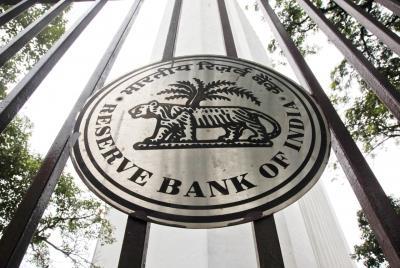
RBI Relief: Liquidity support unleashed to suppress Covid turbulence (Ld)
Mumbai, May 5 (IANS) India's Reserve Bank has initiated several liquidity boosting measures to combat economic turbulence unleashed by the resurgence of Covid-19.
In virtual address, RBI Governor Shaktikanta Das announced a number of liquidity enhancement and targeted measures to ease the build of economic strain seen recently.
"As in the recent past, the Reserve Bank of India (RBI) will continue to monitor the emerging situation and deploy all resources and instruments at its command in the service of the nation, especially for our citizens, business entities and institutions beleaguered by the second wave," he said.
"The devastating speed with which the virus affects different regions of the country has to be matched by swift-footed and wide-ranging actions that are calibrated, sequenced and well-timed so as reach out to various sections of society and business, right down to the smallest and the most vulnerable."
Accordingly, RBI will conduct the second purchase of G-Secs worth Rs 35,000 crore on May 20.
"Domestic financial conditions remain easy on abundant and surplus system liquidity. The average daily net liquidity absorption under the liquidity adjustment facility (LAF) was at Rs 5.8 lakh crore in April 2021," Das said.
"G-SAP has engendered a softening bias in G- sec yields which has continued since then... With system liquidity assured, the RBI is now focusing on increasingly channelising its liquidity operations to support growth impulses, especially at the grassroot level."
The first auction under G-SAP 1.0 was conducted on April 15, 2021 for a notified amount of Rs 25,000 crore.
Besides, RBI announced a targeted on-tap liquidity window of Rs 50,000 crore to set up Covid-related healthcare infra till March 31, 2022.
"Under the scheme, banks can provide fresh lending support to a wide range of entities including vaccine manufactures; importers or suppliers of vaccines and priority medical devices; hospitals or dispensaries; pathology labs; manufactures and suppliers of oxygen and ventilators; importers of vaccines and Covid related drugs; logistics firms and also patients for treatment."
"Banks are being incentivised for quick delivery of credit under the scheme through extension of priority sector classification to such lending up to March 31, 2022. These loans will continue to be classified under priority sector till repayment or maturity, whichever is earlier."
According to Das, banks may deliver these loans to borrowers directly or through intermediary financial entities regulated by the RBI.
"Banks are expected to create a Covid loan book under the scheme. By way of an additional incentive, such banks will be eligible to park their surplus liquidity up to the size of the Covid loan book with the RBI under the reverse repo window at a rate which is 25 bps lower than the repo rate or, termed in a different way, 40 bps higher than the reverse repo rate."
Furthermore, the Reserve Bank will allow restructuring for borrowers with exposure of Rs 25 crore, who have not been beneficiaries of RBI's previous loan restructuring schemes.
Additionally, in order to further incentivise inclusion of unbanked MSMEs into the banking system, the current exemption available for exposures up to Rs 25 lakh and for credit disbursed up to the fortnight ending October 1, 2021 is being extended till December 31, 2021.
Recently, in February 2021 banks were allowed to deduct credit disbursed to new MSME borrowers from their net demand and time liabilities (NDTL) for calculation of the cash reserve ratio (CRR).
In addition, lending by Small Finance Banks (SFBs) to Micro- Finance Institutions (MFIs) for on-lending has been classified as priority sector lending (PSL).
"In view of the fresh challenges brought on by the pandemic and to address the emergent liquidity position of smaller MFIs, SFBs are now being permitted to reckon fresh lending to smaller MFIs for on-lending to individual borrowers as priority sector lending. This facility will be available up to March 31, 2022."
As of now, India suffers from a massive spike in Covid-19 infections.
The latest spike has brought in record number of patients, thereby, impeding healthcare infrastructure's ability to deal with the surge.
Consequently, the situation has forced state governments to implement local lockdowns and travel restrictions which have started to slowdown economic activity.
--IANS
rv/in

Legal Disclaimer:
MENAFN provides the
information “as is” without warranty of any kind. We do not accept
any responsibility or liability for the accuracy, content, images,
videos, licenses, completeness, legality, or reliability of the information
contained in this article. If you have any complaints or copyright
issues related to this article, kindly contact the provider above.

















Comments
No comment